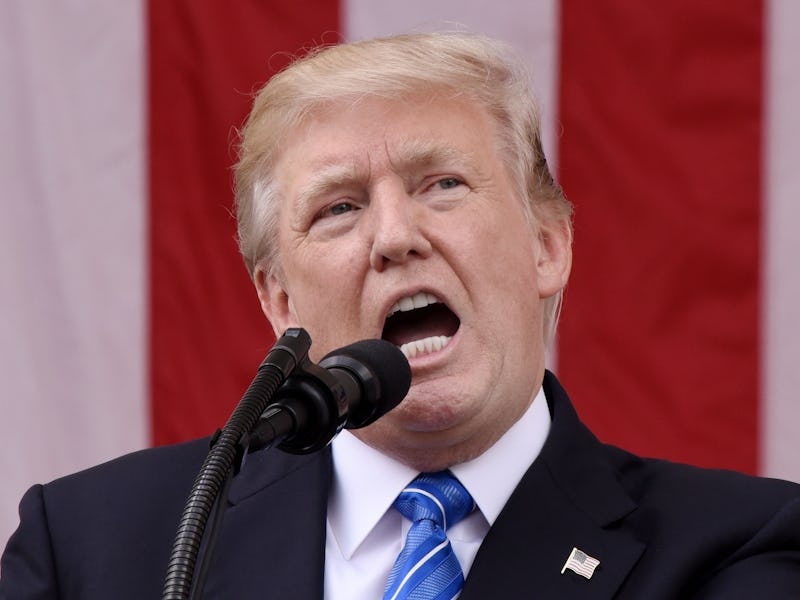What Happens If Trump Withdraws From the Paris Climate Agreement?
A few possible routes for wrecking the climate.

It seems like President Donald Trump might really pull out of the Paris Agreement, joining Syria and Nicaragua to form a small trio of countries not participating in the global plan to reduce greenhouse gas emissions. On Wednesday morning, Axios reported that Trump is ditching the deal made during the Obama administration, which went into effect in November 2016. The Paris Agreement holds each signing nation to greenhouse gas emissions reduction goals based on what its economy can safely absorb. The goal for the United States is currently set at 17.89 percent, which is pretty high compared to other countries.
If Trump does in fact wrench the United States out of the club of 195 nations that have signed the agreement, there are a few paths he could take. Here’s what they look like.
The Fast Way
The terms that former President Barack Obama agreed to when he signed the Paris Agreement do not include an off-ramp until November 2019. If Trump wants to get America off of Paris alone, he’d have to wait until that date to act, according to a report prepared by the Congressional Research Service (CRS) in February. But Trump might not have to wait that long.
The whole Paris Agreement is actually a subsidiary of an older international treaty on climate change, known as the United Nations Framework Convention on Climate Change (UNFCCC). If the UNFCCC comes down, the Paris Agreement will tumble down with it.
Then U.S. Secretary of State John Kerry held his granddaughter as he took the stage to sign the Paris Agreement for climate change in 2016.
The Paris Agreement, known as an “executive agreement” under U.S. law, is easier to set up than a treaty, which needs to be approved by a president and two-thirds of the Senate to go into legal force. The UNFCCC required a lot more legal wrangling to set up than Paris — a full treaty agreed to by former President George H. W. Bush and more than two-thirds of the Senate way back in 1992. And that means it may be thornier for a president to tear down.
The constitutional law on pulling out of treaties is a bit hazy. It’s not totally clear from the existing case law whether two-thirds of the Senate have to agree to roll one back, or whether Trump has the power to kill a treaty on his own.
But if Trump does decide to kill the UNFCCC, the CRS seems fairly convinced he’d succeed — and fast. The result would be a detonation of not just the Paris Agreement but the entire framework on which international climate law has been built for 25 years.
The Slow Way
Of course, Trump could take a more limited approach and wait until the off-ramp comes up in November 2019. At that point, there would be nothing anyone could do to stop him.
If Trump announces that he plans to pull out of Paris by 2019, it wouldn’t matter much that the agreement is technically in place in the meantime. The effect would be akin to lighting a long fuse in full view of the public: The house might still stand for now, but we all would know it’s going to burn down soon. Paris doesn’t bind the U.S. to much in the way of enforceable actions between now and 2019. And Trump, in ditching many landmark Obama-era climate programs, has shown he isn’t very concerned about keeping to its terms anyway.
The “It Actually Doesn’t Matter Which Way” Way
Whenever Trump’s withdrawal from Paris goes into legal force, the most important factor is his intent to kill it. An agreement the president has said he will kill is about as meaningless as one already dead.
In fact, it’s hard to say what the power of Paris has been in the Trump era. The current administration has taken steps, like acting against the Climate Action Plan, that are obviously in opposition to efforts to draw down American greenhouse emissions over the long term.
Arguably, the most important effect pulling out of Paris will have will be changing the global view of American leadership. Countries all over the world signed on to the Paris Agreement under pressure from Barack Obama, John Kerry, and the U.S. international diplomatic apparatus. Looking forward, it will be interesting to see whether other nations will follow America off the path or simply leave it behind in a haze of greenhouse gas.